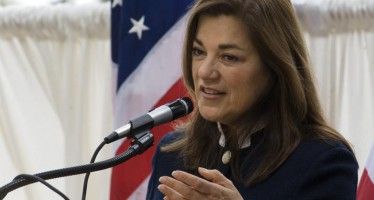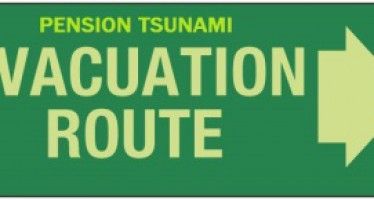State Court's Clarity On Free Speech
This article was first published in the Freeman.
NOV. 28, 2010
By STEVEN GREENHUT
When kids get into complex arguments about who did what to whom, parents can usually sort through the miasma by focusing on a few key points. Whose toy is it? Which one of you threw the first punch? And likewise, almost every major debate in the political arena these days can be sorted out by relying on basic principles. Whose property is it? Who violated someone else’s rights?
I’ve been astounded, for instance, about the heated debate over the Ground Zero mosque. It’s not at Ground Zero and the proposed Muslim community center isn’t really a mosque. But never mind those side points. My question: Who owns the property? Apparently the center is a private project and a lawful use of the property, per the government’s standards. End of story. But critics—many of whom claim to be champions of property rights, religious freedom, and the free market—remain opposed to it because they do not like the idea of a group of individual Muslims building something near a site where some other Muslims committed an atrocity.
The beauty of property rights is that they grant individuals the ability to determine their own future regardless of whether other people like them or not. If I own a property and propose a project that conforms to some easily recognizable preexisting rules, then I have the right to build on it whether or not my neighbors prefer that something else be built on the site—or whether or not they like me, the facility, or my religion.
Likewise, if I own a home or a business, I have a right to decide who gets to visit me on that property. It’s a simple concept. Surprisingly, California’s courts—which seem to have specialized in eroding property rights—cut through the nonsense last July and ruled in a way that would make any parent of a kindergartner proud, even though the same court contradicted itself in a different ruling the next month. Still, it’s progress.
California’s Third District Court of Appeals “struck down a union-backed California law Monday that allows labor picketing on a store’s parking lots and private sidewalks, saying it unconstitutionally requires property owners to host speakers with whom they disagree,” reported the San Francisco Chronicle.
In this case the Sacramento local of the United Food and Commercial Workers Union began picketing a Foods Co. supermarket, owned by the Ralphs Grocery chain. Union protesters stood only a few feet from the door, handed out flyers to customers, and occasionally marched in front of the door.
When the company tried to evict the protesters the union invoked the 1975 Moscone Act. As the court of appeals explained in its decision, “The Moscone Act declares that conduct relating to a ‘labor dispute,’ such as peaceful picketing, ‘shall be legal,’ . . . .” The state’s labor code, the court stated, requires that before a court grants an injunction in a labor dispute, it must find that “unlawful acts have been threatened and will be committed unless restrained” and “That substantial and irreparable injury to complainant’s property will follow” and “That as to each item of relief granted greater injury will be inflicted upon complainant by the denial of relief than will be inflicted upon defendants by the granting of relief” and “That complainant has no adequate remedy at law” and “That the public officers charged with the duty to protect complainant’s property are unable or unwilling to furnish adequate protection.”
Free speech v. organized labor
This is an absurdly hard-to-meet standard. Under the state law, then, protesters can swarm a property unless the owner can prove the protesters will destroy the property and meet all the other impossible-to-prove caveats stated above. In the name of protecting unions in labor disputes, the state code obliterated what one would normally consider the most basic tenet of property rights: the right to keep intruders off of one’s property.
In its 3-0 ruling in Ralphs Grocery Company v. United Food and Commercial Workers Union Local 8, the court ruled: “This case presents the question of whether the state, based on the content of the speech, can force the owner or possessor of real property that is not a public forum to give an uninvited group access to the private property to engage in speech. We conclude that such legislation violates the First and Fourteenth Amendments of the United States Constitution and, therefore, is invalid.”
And more simple clarity from the court: “Forcing a speaker to host or accommodate another speaker’s message violates the host’s free speech rights.”
This is not an inconsequential point. I recall during the four-month grocery union strike in southern California in 2004 the degree to which union protesters disrupted business, harassed customers, yelled at store employees, and did so right by the entrance to these privately owned buildings. In some cases the employees blocked store entrances. (Ironically, the leader of that strike is now speaker of the California Assembly, which offers some insight into the type of legislation that moves forward in California these days.) As I wrote in The Freeman in September 2004, the strike “disrupted most people’s lives. Store hours at almost all major grocery stores were curtailed; food selection was limited; and shoppers who continued to frequent Ralphs, Vons, or Albertsons stores were forced to cross picket lines manned by increasingly surly workers.” Unions gained a leg up in their bargaining because they could wantonly violate private property rights.
In a series of legal decisions over the years, California courts had come up with some convoluted distinctions regarding free speech on private property that is accessible to the public. Before the July ruling the basic standard was that in malls and multistore facilities serving as a de facto town square, individuals have more speech rights than at single-store facilities that are not intended as meeting places. But even at these free-standing stores, labor speech is protected by the above-referenced Moscone Act and other sections of the state labor code.
Public private property
In this particular case the unions showed up about five days a week and picketed the store for about eight hours. The company provided the union with a memo detailing its rules for speech on store property, and union members generally ignored those rules. The store called the Sacramento police, but the police refused to do anything other than give the union picketers the same copy of the rules they already had been ignoring.
The unions argued that the store was actually a public forum because another part of the shopping center had sitting areas. Those sitting areas, in the union’s view, made the store equivalent to a multistore facility that served as a town hall for public debate. The trial court ruled in the union’s favor, noting that the grocery company did not meet the five standards detailed in the Moscone Act.
It also agreed that the store is something of a public forum given that other groups had solicited money and signatures in front of the store. This is like saying one’s front lawn is the equivalent of a public park because the homeowners had allowed neighbors to congregate there. The beauty of property rights is that the owner can decide whom to allow on his property, at what times, and under what conditions—a point thoroughly lost on the trial court but overturned by the appeals court. As the appeals court explained, “A private owner may selectively permit speech or prohibit speech in a private forum without affecting the private nature of the forum.”
The appeals court also rebuked previous courts for decisions that “were based on the now-discredited notion that the First Amendment of the United States Constitution may prohibit private property owners from restricting expressive activities on their properties.” The court found the Moscone act unconstitutional: “The Act affords preferential treatment to speech concerning labor disputes over speech about other issues. It declares that labor protests on private property are legal, even though a similar protest concerning a different issue would constitute trespassing.” It similarly voided the relevant section of the state labor code (section 1138.1).
Attorney General Jerry Brown, recently elected governor again, filed an amicus brief in the Ralphs case that in 21 pages made no reference to private property and no distinction between the speech rights one has in the public square and the rights one has in a private space. His brief noted that “the state has no obligation to assist a property owner in restricting the expression of others.” All this time I thought the main purpose of the government was to ensure the life, liberty, and property of residents are protected from trespass.
Fortunately, the court grasped the latter point. Yes, the court acknowledged, a private property owner can limit access to his property, even to unions that are there to disrupt and harm the business. Yes, there are different free-speech standards—not depending on union membership, but based on where the speech is taking place (private versus public property).
Mixed messages
Ironically, in August the same court came to a rather different conclusion in a free-speech case involving the Westfield Galleria, a large indoor shopping mall in the Sacramento suburb of Roseville, when it ruled against a set of severe speech restrictions adopted by the mall’s management. This is one of the more bizarre such speech issues since the Galleria had adopted a set of rules that prohibit people in the mall’s common areas from “approaching patrons with whom he or she was not previously acquainted for the purpose of communicating with them on a topic unrelated to the business interests” of the mall or shops within the mall, according to a Sacramento Bee report.
The rules are silly and offensive. Hearing about them would make me avoid the Galleria—although I already do so because I hate mall shopping. Nevertheless, despite the complications and circumstances, the same principle should be at work here as in the union-picketing case. Property owners get to set the rules on their own property, even bad ones, just as I get to determine the guests at my own house, even if I decide to invite a group of ne’er-do-wells and deadbeats.
Instead, the court ruled that the Galleria’s rules “are unconstitutional on their face.” Still, I can’t help but be thrilled by its decision in the Ralphs case and its recognition that unions do not have a set of free-speech rights elevated above everyone else. Overall, it’s a step forward for property rights in California, given that disruptive union picketing is common and few malls arrest customers who chat about the weather.
Related Articles
California seeks solutions to higher energy costs
Amid a shifting landscape of growing consumer choices and increasingly exacting emissions regulations, state utilities and regulators have pressed ahead
How much does Sanchez’s House experience matter in the Senate?
Loretta Sanchez spent much of her time at the California Democratic convention last weekend trying to persuade the party faithful that her
Judge confirms the ‘California rule’: Pensions can only go up
A state judge on Monday did a split-the-baby routine with San Jose’s voter-approved pension-reform law: “SAN JOSE — In a




